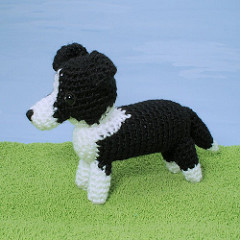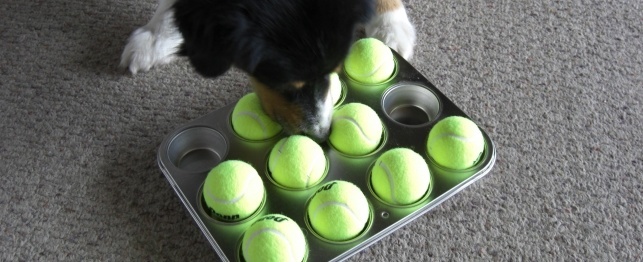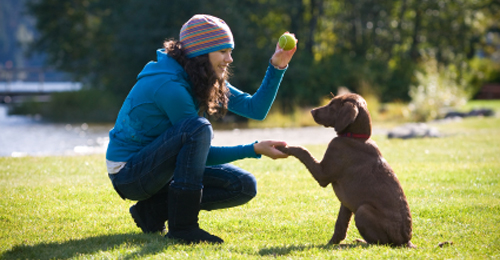Ways To Support Your Dog If It Has Been Through Seperation Anxiety
I've got two pet dogs which are both well trained pretty good and show that upon outings towards the dog parks. A matter I frequently get enquired is about a really common trouble with lots of dogs, dogs separation anxiety. One of my dogs never experienced that problem nonetheless one did. Plus it ended up being a serious obstacle to overcome this problem for each of us. Canines can be fairly destructive whenever struggling with separation anxiety, I have a Doberman Pincher that ate a couch one time, plus it was an extremely expensive one. My partner practically chucked me as well as the dog out on that deal.
My dog that's having the anxiety troubles is a border collie mix. He's got all of the appearances, characteristics, as well as behaviour of a herding dog. And he is among the brightest and also sneakiest dogs I have ever possessed. Border collies possess a lot of superb qualities and are a breeze to train. They enjoy to run and require lots of action every day to keep them away from trouble.
Our border collie mix has been a rescue and had owners which didn't misuse him yet did abandon him bound in the garden a significant amount of. That's exactly how I think he developed his dog separation difficulties however I in addition believe quite a few dogs are merely far more clingy by nature. Some acquire the issue by negligence too, from what I've found over the years.
Our dog is recognized throughout our community because of his exceptional ability to break free from any type of containment. He's an exceptionally pleasant visitor to any open door, curious by nature, and is thrilled to come look at you no matter whether you're human or even creature. And he doesn't like to be left on it's own. The good news is he isn't really destructive in acting out his separation anxiety, aside from tearing down a couple of wooden doors.
I've had canines ever since I was a youngster and had a couple of superb trainers coach me a great deal of tips about training your dog. My first dog was a hunting dog and I used a long time training him, in both a pleasant manner and retrieving. It had been a springer spaniel and fortunately had several great natural talents. However he also experienced dogs seperation anxiety problems and so I got some early on instructions about working with this challenge.
You might find out about some drug treatments which will help with this kind of anxiety however that's never ever a great choice. Firstly virtually all don't work and it's typically not realistic to sedate your pet for long time periods. It's in no way healthy and is addressing the symptoms instead of the real problem. Melatonin can function with humans with regard to sleep issues, yet I've never witnessed this improve significantly with dogs.
Crating can help with some dogs though with our border collie he was in fact able to disassemble even the best designs within just hours. Crates do come in handy for several reasons and utilised correctly they usually are good for specific situations. Several dogs behave horribly to crates. In case you have a dog that will paws on the entrance door, gnaws the bars, and usually goes crazy if you place them in then, it's definitely not a good answer for separation anxiety.
Behavior alteration is actually your best choice meant for training your dog of any type. And with dogs separation anxiety, it's normally the most suitable choice as well. There are three points that I usually suggest initially to assist with separation anxiety.
- Plenty of physical exercise and also play time before leaving (this can include toilet visits)
- Give them something they enjoy to relax and play with such as plastic bone or even indestructible squeaky toy
- Never make a big deal out of leaving or coming back home
Behaviour modification is actually conditioning that can take place after some time, not an quick resolve. You need to be repetitive and also constant when working in new areas or even with assorted goals. Gently leave and come back for short time periods with minimal excitement. Cause it to seem like an every day deal.
Expand the amount of time that you are absent slowly but surely. There's lots of discussion about whether a dog actually has a feeling of time over a very long period. I think they have a sense of time yet it's very restricted. But it's never the good thing to abandon your dog on it's own longer than 8-10 hrs due to actual physical comfort and crucial consuming as well as relieving them selves.
Each dog can be unique plus some could take more time and energy compared to others to conquer dogs separation anxiety. And also the issue will also be even more of a problem in the event the dog is destructive while the owner has disappeared. The secret is for being patient, work with your canine, and adhere to your regime.

 Parks & Recreation: 7 Tips for Enjoying Dog Parks
Parks & Recreation: 7 Tips for Enjoying Dog P
Parks & Recreation: 7 Tips for Enjoying Dog Parks
Parks & Recreation: 7 Tips for Enjoying Dog P
 Train Your Border Collie Dog With These Helpful Hints
The day your new puppy comes home with you will be filled
Train Your Border Collie Dog With These Helpful Hints
The day your new puppy comes home with you will be filled
 The Fabulous Muffin Tin Game for Dogs
The Fabulous Muffin Tin Game for Dogs
The Fabulous Muffin Tin Game for Dogs
The Fabulous Muffin Tin Game for Dogs
 Secrets To German Shepherd Coaching
Keep the courses sessions short but often. When things lose
Secrets To German Shepherd Coaching
Keep the courses sessions short but often. When things lose
 Teaching Your Dog Polite Leash Skills - Canine Manners 101 Dog Training Series
Teaching Your Dog Polite Leash Skills
This article i
Teaching Your Dog Polite Leash Skills - Canine Manners 101 Dog Training Series
Teaching Your Dog Polite Leash Skills
This article i